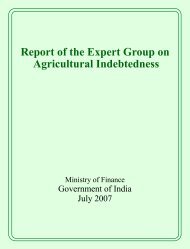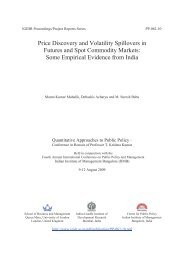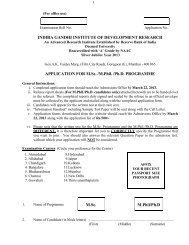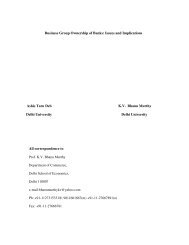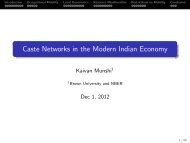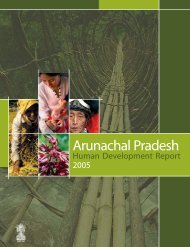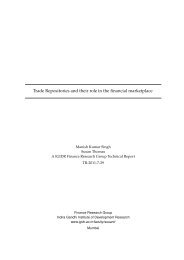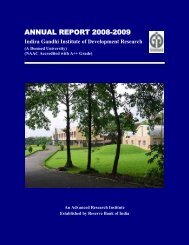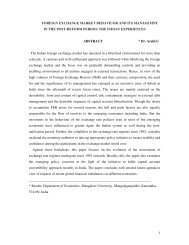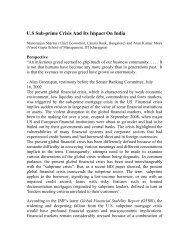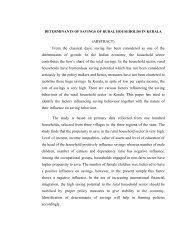Kerala 2005 - of Planning Commission
Kerala 2005 - of Planning Commission
Kerala 2005 - of Planning Commission
You also want an ePaper? Increase the reach of your titles
YUMPU automatically turns print PDFs into web optimized ePapers that Google loves.
CHAPTER 5<br />
Human Development<br />
and Economic Growth<br />
CONGRUENCE AND CONFLICT<br />
1. Introduction<br />
As already discussed, human development indicates enlarging people’s<br />
choices in a way which enables them to lead longer, healthier and fuller<br />
lives. As has been stated by Ranis et al (2000), higher levels <strong>of</strong> human<br />
development in addition to being an end in themselves affect the economy<br />
through enhancing people’s capability and consequently their creativity and<br />
productivity. Available evidences suggest that as people become healthier,<br />
better nourished and educated, they contribute more to economic growth<br />
via enhanced capabilities.<br />
Regarding education, variation in the rate <strong>of</strong> return with the level <strong>of</strong><br />
education is <strong>of</strong>ten interpreted as the most straightforward indicator <strong>of</strong> the<br />
impact <strong>of</strong> education on productivity. It also represents critical elements<br />
in the development <strong>of</strong> key institutions essential for economic growth.<br />
Positive effects <strong>of</strong> education encompass all spheres <strong>of</strong> economic activities.<br />
In agriculture, evidence shows productivity differentials between farmers<br />
using modern technologies and traditional ones. 1 Contribution <strong>of</strong><br />
education to technological capability and technical change in industry is<br />
well established, as a plethora <strong>of</strong> studies have shown positive correlation<br />
between technical change <strong>of</strong> the firm and the skill and educational level<br />
<strong>of</strong> the workers and entrepreneurs. As the modern services sector is an<br />
amalgam <strong>of</strong> activities, which are knowledge-based/intensive, education<br />
and, thus human capital, directly goes in as a factor <strong>of</strong> production.<br />
1 In Nepal, the completion <strong>of</strong> at least seven years <strong>of</strong> schooling increased productivity in wheat by over a quarter and rice by<br />
13 per cent. (Jamison and Moock, 1984).



